Let’s face it, with access to the internet, a lot of jobs and skills that were once sought out and paid for have become jobs you can do yourself. With a little advice and a Youtube video, you can almost build anything on your own. Still, not all advice given is created equal nor should be treated equally. Unfortunately, in the pool industry, bad advice can sometimes mean hundreds of dollars out of your pocket and a lot of missed time out of your pool. Throughout the years we have encountered a lot of customers who have taken their share of bad advice. We wanted to share the top 5 with you in hopes you won’t make those same mistakes. Caveat Emptor!
“I was told I could just put the chlorine tablets in the skimmer or pump basket.”
I’m saddened to say that we encounter this issue at least five times every season and our response is always the same, “Please do NOT put your chlorine tablets into your skimmer or pump.” Your pump and filter are the two driving forces that keep your pool clean and healthy. Let’s say you decide to put your chlorine tablets, or “hockey pucks” as a lot of people like to call them, into your skimmer. Once your pump and filter turns off, the tablets keep dissolving in your skimmer, forming highly acidic water. Once the pump is turned back on, this same acidic water goes straight into the filter. This can compromise the internal parts of your filter – cartridges, o-rings, and gaskets – forcing you to replace them earlier than normally necessary.
Instead of putting chlorine tablets in your skimmer or pump, we recommend using a chlorinator. A chlorinator will automatically disperse chlorine into your pool according to an adjustable setting on the unit. Chlorinators work with your existing pump and filter and are usually very easy to install. Another option is a floating chlorinator which is just a plastic vessel that holds tablets and floats in the pool. Floating chlorinators are super cheap and can usually be found in local stores like Walmart. Whatever you do, though, please do not put chlorine tablets into your skimmer or pump!
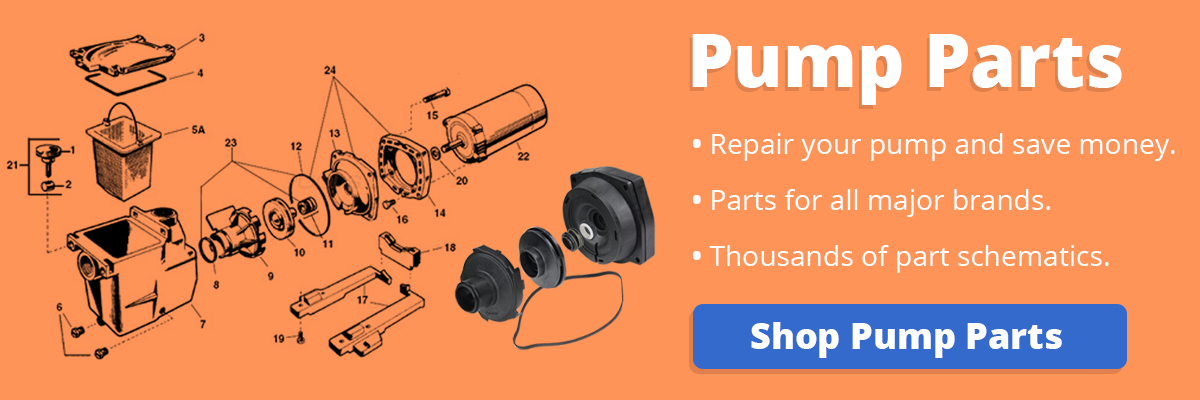
“My pool guy told me I could run my pump a few hours a day…. but now my pool is green.”
Pool pumps should run on average between 8-10 hours a day. As a basic rule of thumb, you should be able to filter your entire pool within an 8-hour time frame. In other words, your entire pool (in gallons) should pass through the filter in this 8 hour period. If you are not giving your pump and filter enough time to properly clean the pool and keep the chemicals in flow, your pool will turn green. Not to mention, it might be unsafe for even recreational purposes.
As a pool owner, you need to become comfortable with certain pool calculations. If not for yourself, definitely as a means of double checking pool “professionals” who may steer you in the wrong direction. Here’s how you can calculate the minimum time you need to operate your pump
- Determine how many gallons of water is in your pool. (Pool’s length x Pool’s width x Pool’s average depth x 7.5)
- Figure out the pump’s gallon per minute (GPM) This information is typically listed on the pump label. Once you find this number, multiply that by 60 to get the gallons per hour.
- Divide the gallons per hour into the total gallons in your pool.
- This answer gives you the minimum hours needed to run your pump so that your entire pool is filtered properly.
So the next time someone recommends that you run your pump for “insert # of hours”, always refer back to the GPM of your pump. No one likes to swim in a dirty pool and no pool owner likes to spend additional money to fix something that was preventable from the start.
“My pool guy sold me a bigger pump than I had on before because he said the bigger the pump, the less I’ll have to run it.”
When it comes to pumps, bigger is not always better. A pump is limited by the plumbing size set up at your home and the maximum capacity your pool filter can handle. A higher horsepower (HP) means more power and energy is being used to pump the same amount of water, thus causing your energy bill to skyrocket. A higher horsepower draws more amps but does not move the water faster through your circulation system. Instead of reaping the benefits you thought you were getting by increasing your HP, you end up with a higher energy bill, a burnt-out motor, and an oversized pump you spent more money on than you wish you had.
If you need help trying to properly size your pool pump or want to verify if your current HP is accurate, then please check out our how to guide labeled How To Size A Pool Pump.
If you’re looking to save money, our advice is to switch to a dual speed or variable speed pump. By switching to one of these, you are able to operate your pump using less energy. You can operate your pump at the lower speeds during normal circulation and on high speed whenever you clean your pool. And who doesn’t like saving money, right? In short, bigger is not better when determining the horsepower for your pool pump. Over sizing is very common, but very easy to fix. We are always available to verify if your pump is oversized and if you are overspending.

“You can determine if your pool is clean by the smell of chemicals.”
If someone ever tells you this, take a step back, and go in the opposite direction. The smell of chemicals is not an indication of a clean pool, but just the opposite. A properly disinfected pool has no strong chemical smell. The strong smell common to many pools, especially public, is due to something called chloramines. Chloramines are the byproducts of chlorine’s reaction to contaminants brought into the pool by swimmers. These contaminants include perspiration, urine, body oils, and cosmetics.
Therefore, a strong chemical odor is actually an indication that the chlorine in the pool is working overtime due to the excess amount of contaminants and not an indication of it being clean.

“My pool guy told me I could use Vaseline (petroleum jelly) to lubricate my o-rings.”
You should never, ever use Vaseline or any petroleum-based lubricants for any of your o-rings. Most manufacturers recommend a silicone or a Teflon-based lubricant for all o-rings and gaskets. The oil composites of the petroleum jelly will cause the rubber to break down and will completely eat away your o-ring. Although o-rings range in size from really small to very large, never underestimate their power or the importance of their job. Using the wrong type of lubricant can cause leaks and ruin your system.
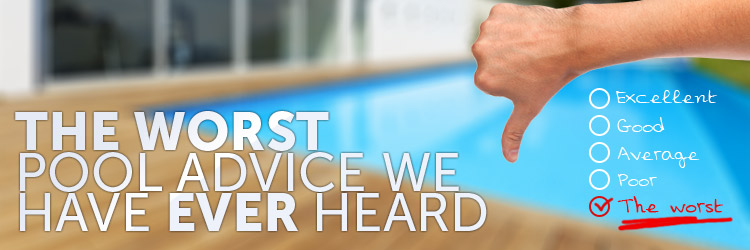
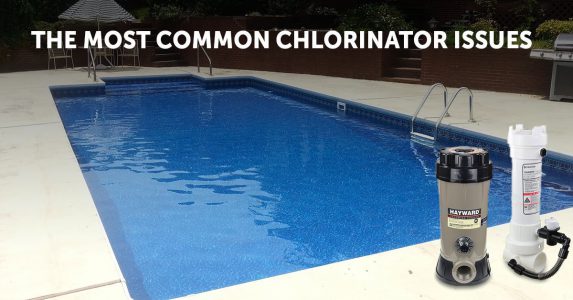
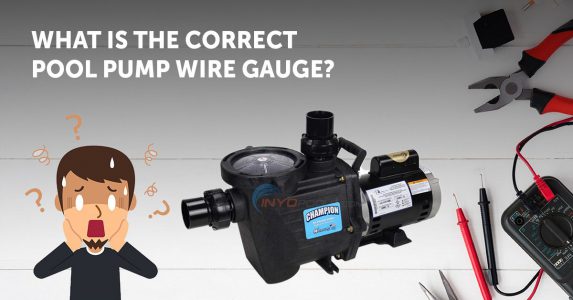
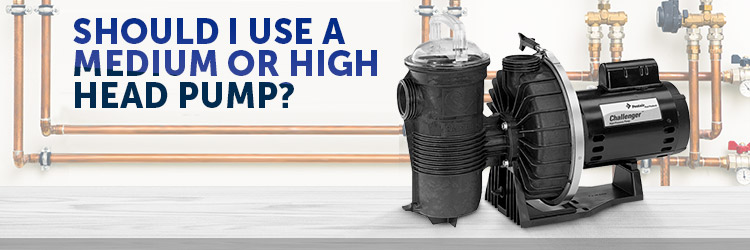
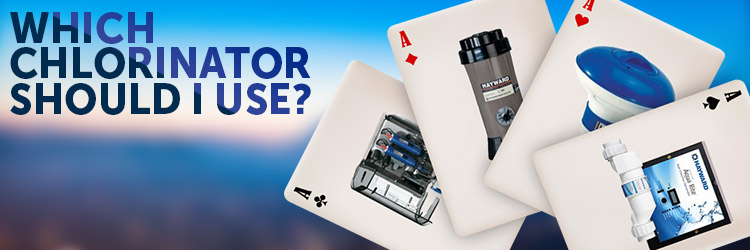






I just bought a 15ft 5k gallon intex vinyl pool I set it up 2 days ago to begin with even though it’s new fresh water it has a greenish tone already.. I just bought the chloride tablet and put it in the floating dispenser inside pool. I also bought algicide 50% and shock plus.. can you tell me when do I start using those chemicals? and put them in like at night leave the pump on and can I put them both together?
Need to shock it once a week… Put about 4bags of shock and let it sit. You’ll be fine
Also check that the green is not due to metals in hard water used to fill the pool versus algae.
A high copper content will cause a green hew. More info: Why is my pool green after filling with fresh water?
The real case for not using the skimmer as a chlorinator is that the chlorine hits the dirty filter first and is used up before it sanitizes the pool. Chlorine belongs in the pool not in the filter.
I do not agree with the advice to run the pump 8 to 10 hours per day. I did so the first year I had my pool and then I gradually cut back each year. Now I run it maybe 3 to 4 hours per WEEK and I have had zero problems. I keep on top of the water chemistry and everything is fine.
It really depends on the pool, a 10.000 gallon pool will take a lot less time for all of the water to run through the filter, than a 200.000 gallon pool.
I just replaced my salt cell and it continues to read 4000. Any ideas why?
Have you gotten the water tested to determine if the salinity truly is 4000 ppm? That would have been my first step.
What is the make and model of the salt system?
Forgive me if this has been said above. I suspect it has but there’s a lot to search through to check!
1. Just don’t even USE pucks (in the great majority of cases)
2. Pumping for 8-10 hours is as arbitrary as a FREE chlorine level of 3 ppm. Excessive for a small pool (not harmful though except to an electric bill). Possibly insufficient for a larger pool.
How many hours? Enough to be sure to turn over the whole pool volume each day. Check tfp’s PoolMath calculator for an easy volume figure then apply that volume to your pump’s gallons-per-minute (gpm) rating.
3. Chemical smell is not required for a pool in good order, but is NOT a curse. It’s a sign of somethin you need to respond to by way of a SLAM (*Shock *Level *And *Maintain – tfp explains). It’s the smell of combined chloramines, from chlorine doing tge second part of its job – combining with contaminants to eradicate them.
It totally baffles me how many pool owners here have no clue to how to care for something they paid hundreds if not thousands of dollars for something without investing a little time to educate themselves on pool care. People spend some time learning about things that require maintenance and as well how to do it, BEFORE making a big investment in something that can be dangerous for you or your children if not handled properly.
There are many websites on the web to assist you in your journey. Take the time to educate yourself and save both a great deal of time and money. By doing so, you may even enjoy your investment instead of it causing you frustration..
New to this
Got a above ground pool. A week after I shocked it added the floating pucks but then the pump went out it came with after I applied the shock. I got a sand filter pump but now have the shock residue bottom of pool. What to do ? I tried running the brush through the water stirring it up but it settled.
Get an above ground pool pump that works and start vacuuming the leftovers. Because you have a sand filter, the shock residue can be vacuumed to waste pretty easily.
I have a new 10×18 42” intex pool and I purchased a saltwater system and started w salt. The bags are so heavy I decided to try regular chemicals and I’ve tested my water at home and the store with no problems. Will it hurt my salt water pump to not being using salt? Thanks! Becky
I’m a new owner of an Intex 18’x48″ above ground…. I have so many questions…
* First I know I need to get my water tested but haven’t yet.
* The pump that came with it barley circulates any water at all. Is this normal? I can’t find the HP any where on the pump. Do I need a stronger HP?
* Can you use a sand pump with a chlorine pool?
* Which vacuum (brand) to purchase that’s the least complicated to use but does the job?
* I haven’t bought a skimmer yet because it has to be one that hangs over the pool as I don’t want to cut the liner.
* My water is cloudy but it’s probably because it hasn’t been maintained. When I purchase the right products hopefully that will take care of my issues.
Also….
When the guy installed it he said to:
Initially put in 5 bags of the hth supper shock treatment. After that put 1 bag in every month.
Put one whole 1 qt bottle hth Super Algae 60. Then another bottle every 6 months.
Put 1…. 3″ tablet in the floater but didn’t say how often.
I’m sorry for so many questions. Hopefully you can help me.
Thanks much
1) Get your pool water tested, and purchase a water testing kit.
2) It is usual for Intex pump and filters to be substandard. For a pool that size, a 1 HP pump would be a proper size. Inyo’s pool pump and filter combinations.
3) Yes, you can use sand, cartridge or DE.
4) Get a suction cleaner, like the Baracuda or Pureline models.
Is it ok to put chlorine into the skimmer if the filter is run all the time? The filter I currently own is on the lower-end and doesn’t cycle all of the water in the specified 8 hours. I understand thaf if it is off, the tablets continue to dissolve, but I don’t believe that will be that big of a problem with a constantly running filter.
No, pouring chlorine directly into the skimmer will ruin your skimmer and pump’s internal parts. Chlorine is a very caustic material, so it needs to be diluted. That is why we pour chlorine into the pool, or use tablet feeders that float or are plumbed last on the return line. So by the time the chlorine works its way back to the skimmer and pump it has been diluted to safe levels.
But if you want to buy new skimmer and pump baskets yearly, have at it.
Yearly is exagerated, might replace baskets every few years and pumps shaft seal also. Most severe damage is the skimmer pipe will construct over the next 15 years and lose flow by as much as half.
How many gallons of water is in in a above ground 15 by 33 48 inch deep
Around 3300
Actually I looked at question wrong. We have a 15ft round 48 inches holds 3300 but yours is 15×33 rectangle I’m guessing since I’d about double that making around 6000 to 6600. You be an also look up a formula online to calculate by your dimensions.
do they make a skimmer that hangs on the side of a above ground pool
Pretty much every skimmer I have seen are bolted to a pre-cut opening in the pool wall
Intex makes one that works rather well for what it is. Just make sure the connections are the correct size for your pool. Just google Intex Deluxe Wall Mount Surface Skimmer.
thanks
Hi Becky…. I’ve seen skimmers on line that hang over an above ground pool. I don’t want to cut into my liner so I’m going to buy the hang over one. Have a good day. 🙂
Yes, they make skimmers that hang on the wall of an above ground pool. They are rare and are called over the wall skimmers.
We are having an above ground pool installed and will have the oxygen system. There’s not much info online about this system. Are you familiar with it at all or have any suggestions?
I think you may be talking about ozonators; but no, I do not know much about them. They were popular for a bit but didn’t catch on like the salt systems. We actually have an article about ozonators, but you might not want to read it now: Why Ozonators Aren’t That Great
I have just opened my above ground pool which has 17,000 gals of water. My ph is high, reading no chlorine and it’s very, very green, all are usual when i open it. I have treated with algacide and put 11 lbs of shock in so far. The water has changed to very cloudy and test is still showing no chlorine. I’m assuming this is because the shock is being used to kill the algae but I hesitate to add more. It has been filtering non stop for 3 days. Should I add more shock or just let it filter more first? Thanks for your help
I would shock the water again to get the last bit of any clinging algae exterminated. The cloudiness is dead algae floating in your water. Apply some clarifier or Floc & Vac to clear it up.
Hello……I just opened our chlorine bucket and the gas that came out was awful. After giving it a few minutes utes I went back and looked at them and it looks as if they so somehow got a little water on them. I mean little as there as no water sitting in the plastic bag or the bottom of the bucket. Are these safe to store without worry. There were only 3 pucks left in the bucket and each one had a small dark spot on them…
If this is affecting a bucket that contains just 3 pucks, throw them out and get a new bucket.
We are renting a home with a pool and noticed that the pool person put a large rock at the entrance of the skimmer. Since he has done this the pool is sucking in air and the jets are making large bubbles. We mentioned this to the pool person and he stated it was due to a dysfunction in the vacuum hose. We have since removed the rock and the pump pressure is normalizing and it does not appear to be sucking in additional air. What I do not understand is why he would place a large rock at the entrance of the skimmer. I feel bad for the owner and want to make sure that they are not causing any unnecessary issues for the pool.
Doesn’t seem reasonable at all…
We had found out that when the company put on our pool finish someone accidentally put some silicone in the stone scape finish. We have a couple spots that were like caulk and have come off leaving a spot that looks like a rusty spot. They quote “fixed” it but the fix has come off again. We do not know how much silicone was mixed in the finish. The contractor has offered us a discount because they had put the wrong color finish. We have been swimming since the beginning of July. We have not given the final payment yet. The silicone was removed from another pool when someone thought it belonged in the mix. Any advice? Are we long term problems with this finish? Should we make the contractor replace the finish? Or seek legal advice?
This is more of a question for a contractor or installer. unfortunately, I do not have much experience with decking. You might want to give the people at TroubleFreePool.com a show at your question.
I just have one question, Matthew, do all pools come with a Manuel? Do Manuels clean the pool for you? This thread is the bomb! QUALITY BANTER. That should be your site logo Matthew “Come for the great advice on pools, stay for the banter” Florida mum’s bringing it too!
Matthew simmons, youlre such a patient guy. Well done
My wife would like to disagree with you, but I appreciate it. lol
I’m aware that putting chlorine tablets directly into the skimmer is a big fat NO when it comes to pools. Recently we switched over to a saltwater system which I absolutely love. I do not like running a boost though because I think it puts a lot of strain on the salt cell, my pump, my energy bill Etc… when we have had a lot of rain, I have taken a chlorine tablet and smashed it into small chunks. These are leftovers from my chlorinated system. I take one of the chunks and I put it in the skimmer at the beginning of the day when the system First turns on. By the end of the day it has completely dissolved. I have been doing this for the last couple weeks and every week we have had our water professionally tested with perfect results. That is all I have done I have not added any other chemicals. I know that the damage comes from when the system shuts down and the tablets it’s in the skimmer dissolving and becoming a very high concentration. That being said, am I still causing harm by performing my chip method?
The chip method may be causing damage to parts, just in smaller increments. Because either way you slice it (or crumble it) there is still undiluted chlorine coming in contact directly with your pump and filter parts. Since you are in Florida, I would go to one of the hundreds of pool stores, or even a Publix to get a floater. They are super cheap and simple. Drop a whole tablet in the container and throw it in the pool. It does the same basic job as the skimmer basket method, without the chance of equipment damage.
I was just looking for a way to use up the 3 tablets we had. I don’t want to buy anymore, and if I need to run a Boost, ill just but liquid chlorine and shock it.
Good to know anyways!
Thanks.
PS… Sure, we can be friends lol!😁
PPS… My husband had been doing pool service and installations for 20 years. Don’t tell him I did this!😉
He won’t ever answer me, so I come to this site for answers, but he did say don’t put tablets in the skimmer.
I don’t have a Manuel. I just moved into this house. It did not come with Manuel and my floater was bought from a pool supply without a box or Manuel. Otherwise I would not have taken the time to ask you
My apologies for attempting to help you.
You may want to try contacting the dealer from whom you purchased the chlorinator.
Nice attitude. By the way, Manuel is a Spanish man’s name. The word you’re looking for is, manual.
lol
I have a 15 x 35 in ground liner pool. How many chlorine tablets to use in a floater? . I was advised by pool company not to put tablets in skimmer and to use a floater. Thanks.
Read the manual, it should list the capacity of the floater, and put that many in. Give it a few days, test the water and see how the chemical levels are doing to determine if there needs to be a change in your approach.
Hi,
I just bought an above ground ring pool. I would prefer to use salt instead of chemicals. I currently have the pool, a pump and a filter that all came as a package. If I go with salt, what other accessories/equipment will I need to buy (aside from the salt) in order to make this work?
Thank you 🙂
Amanda,
We have an article that covers what you need for the conversion. Take some time to read through it, here: Converting Your Pool to Saltwater
Thanks Matt. This is very helpful. In the interest of finances, I am wondering if all the mentioned equipment is really necessary or if it possible to test the pool each water and add salt as needed (instead of buying an actual salt system)?
If not, I may just go with chemicals since I won’t need to purchase additional equipment…
You can’t just add salt to the pool instead of chemicals. You need a salt cell that converts the salt water into chlorine. You should just stick to using the basic chlorine setup that the pool cans with…
I have a above ground pool I switched to salt can I use liquid chlorine also so it doesn’t turn green.
Yes, you can bolster your salt chlorinator with liquid chlorine. But the more important question, is why is your pool turning green with a new salt system installed?
Hello,
I have a 15 x 52 above ground round pool, I’m using an Intex sand filter. My issue is it keeps putting sand back into my pool. I have emptied, cleaned and check the laterals and main tube no cracks or holes. I backwash for three minutes after vacuuming then rinse for about a minute before switching to filter. But after all that I still get sand. What could possibly causing the sand to return?
There is a chance you cannot see the crack or seam because it only presents itself when under pressure from the pump. The best bet would be to replace the set of laterals, unless you want to take it apart one more time.
Our pool company said that the pucks should not contain copper as they will eat away the heater, also Costco’s chlorine tablets have copper.
Is this a ploy to buy there products.
Currently using Leslie’s tablets.
CONFUSED we are